Do you have a garden? If so, you may have noticed some small, brown creatures crawling around in the leaves and soil. These are garden snails, and they love to eat plants! This blog post will discuss what types of plants garden snails like to eat, as well as how to get rid of them if they become a nuisance.
The Garden Snail Diet
Vegetables and Fruits
Garden snails mainly feed on vegetables, fruits, and other vegetation. They particularly enjoy lettuce, cabbage, spinach, and turnips as well as apples, bananas, and strawberries. Snails can find in these plants the necessary nutrients to keep their bodies healthy.
Calcium Sources
Garden snails also need calcium for their shells and other body parts, so it is important to include calcium sources in their diet. You can provide them with cuttlebone, eggshells, or oyster shells. These should be crushed into small pieces before being given to snails as they cannot bite through larger chunks.
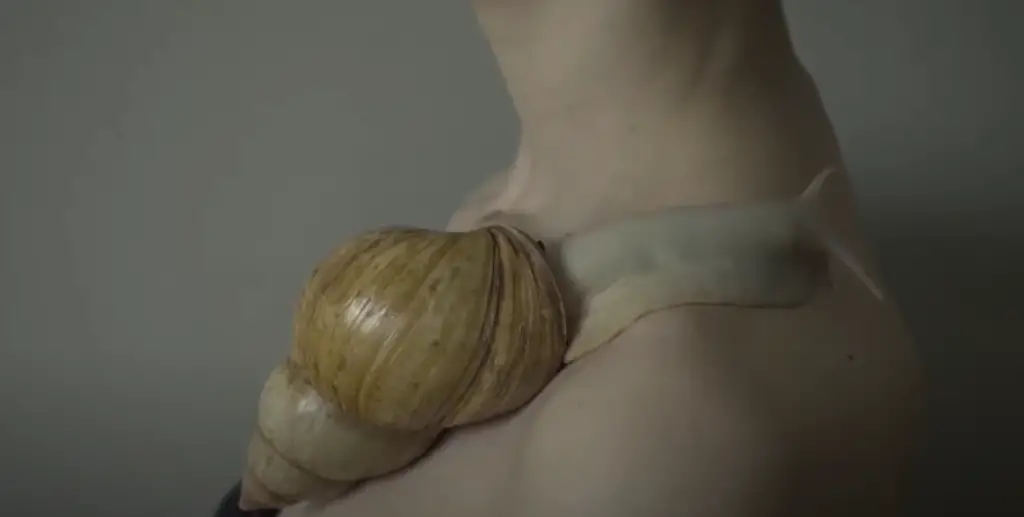
Protein Sources
In addition to their plant-based diet, garden snails will occasionally eat small amounts of protein sources such as dead insects or worms. This helps provide them with essential nutrients that a vegetable-only diet cannot supply in adequate amounts.
Grains and Legumes
Garden snails can also benefit from the occasional grain or legume offering of wheat bran or cooked oatmeal for example. Grains should be limited, however, as they can lead to obesity in snails.
Flowers and grass
Garden snails will also enjoy nibbling on flowers and grasses. These can be served fresh or dried, if necessary. Flowers are often easier for them to eat than grains as they contain more moisture. Among the flowers that snails eat are daisies, dandelions, and nasturtiums. Grasses they tend to like include rye, barley, and oat grasses.
Leafy greens
In addition to their other diet choices, snails need plenty of leafy greens to stay healthy. These should include a variety, such as kale, mustard greens, and collard greens. Snails like leafy greens because they are easy to chew and digest, plus they contain high levels of essential nutrients.
Mushrooms
Finally, snails will sometimes eat mushrooms. Although not a main component of their diet, they can be given as an occasional snack or treat. It is important to stay away from toxic mushrooms if feeding them to your snails [1].
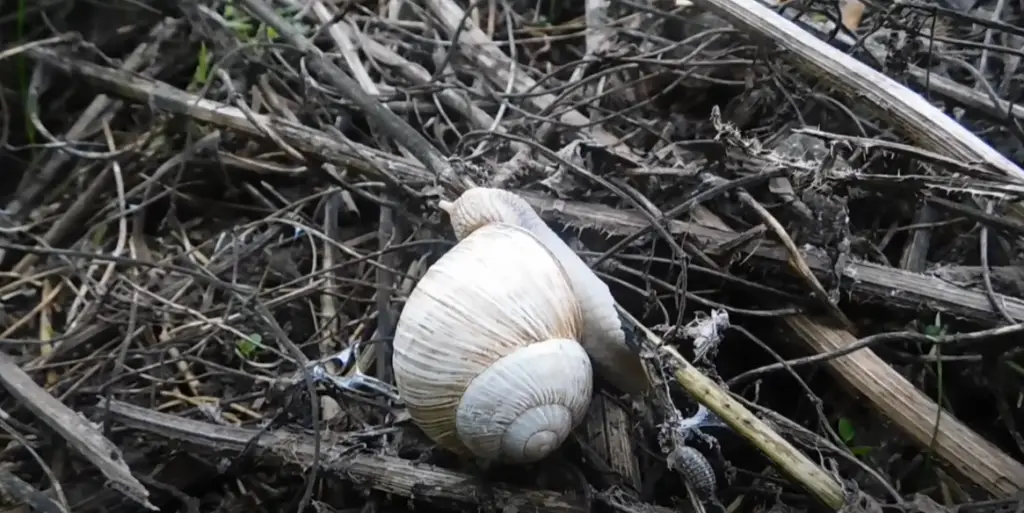
What Can Garden Snails Not Eat?
Salt
Garden snails cannot eat salt as it can cause dehydration and even death. Salt crystals absorb moisture from the snail’s body, so it is best to avoid feeding them any foods that contain high amounts of salt such as chips, crackers, pretzels, or other salty snacks.
Citrus Fruits
Citrus fruits such as lemons, oranges, and limes should never be fed to garden snails. These fruits are highly acidic and can cause serious digestive issues for the snails if ingested.
Dairy products
Dairy products should also be avoided when feeding garden snails. Dairy contains high amounts of fat and lactose, which can cause digestive issues for the snails if ingested. It is best to avoid dairy altogether when creating a diet for your garden snails.
Plants with Sharp Leaves or Thorns
Garden snails should never be fed plants that have sharp leaves or thorns as they can damage their delicate bodies. Examples of these types of plants include cacti, holly, rose bushes, and other spiky plants.
Rotting vegetables
Rotting vegetables are not a suitable food choice for garden snails either. These vegetables contain bacteria and fungi that can make the snail sick if ingested. It is best to feed your snails fresh fruits and vegetables instead.
Raw Meat and Fish
Raw meat and fish should also never be fed to garden snails as they can contain parasites or bacteria that can make the snail sick. It is best to avoid feeding your snails any type of raw meat or fish altogether.
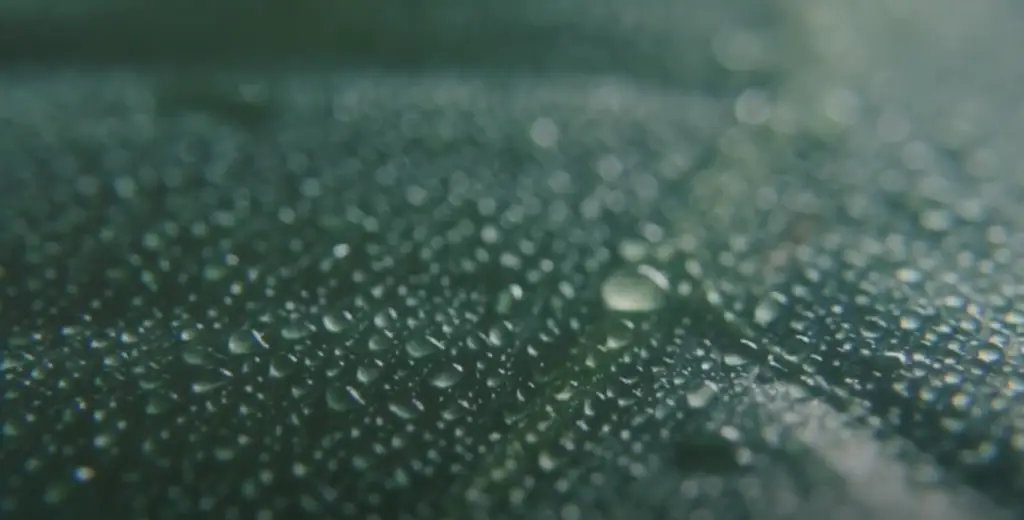
Canned food
Canned food is also not a suitable option for garden snails as it contains preservatives and other chemicals that can be harmful to them. It is best to feed your snails fresh fruits and vegetables instead of canned or prepackaged foods [2].
What Animals Eat Garden Snails?
Garden snails are a common food source for many animals. Birds, amphibians, reptiles, and even some mammals will feed on them. Some of the most common predators of garden snails include:
- Lizards
- Frogs
- Toads
- Snakes
- Turtles
- Insectivorous Birds (Robins)
- Skunks
- Opossums
- Foxes
- Raccoons
These animals all have different ways they hunt for and consuming garden snails. Some use their eyes to spot snail movement from far away, while others rely on their aquatic or burrowing skills to get close enough for a meal. Additionally, some animals may use their sense of smell to detect a snail and catch it quickly.
Finally, garden snails are even eaten by humans in some cultures! Some recipes call for them as ingredients. Snail dishes have been around since ancient times and can be found all over the world.
Can snails bite humans?
Snails do have the capability to bite humans, however, it is usually not a cause for concern. Snail bites are generally harmless and only cause minor skin irritation. The biting of snails is typically done out of defense or in response to feeling threatened. If you come into contact with a snail, it’s best to be gentle and avoid putting your fingers near its mouthparts.
Additionally, some species of predatory sea snails can pose a greater risk due to their venomous capabilities when handling them. As with any animal, caution should be taken when interacting with a snail. If you experience any adverse reactions such as redness or itching after coming into contact with a snail, seek immediate medical attention.
To help prevent potential bites, it’s important to never pick up a snail with your bare hands and always use protective gloves or tools when handling them. Overall, while snails are capable of biting humans, most bites are minor and cause little to no harm. If you experience any adverse reactions after contact with a snail, seek medical attention as soon as possible for proper diagnosis and treatment. Taking the necessary precautions is also important in helping to avoid potential bites from snails.
By being mindful of snail behavior and taking the appropriate safety measures during interactions with them, you can help protect yourself from any potential harm that may arise from coming into contact with these creatures.
How to get rid of snails in the garden?
Snails can be a nuisance in the garden, but there are some steps you can take to get rid of them. The first step is to remove any potential hiding places for snails. This includes piles of leaves, rocks, and logs that snails may hide under or inside. Also, keep gardens free of weeds as these provide areas for snails to hide and multiply.
You can also make homemade solutions such as beer traps, vinegar sprays, and garlic sprays to deter snails from entering your garden. Beer traps are particularly effective as snails are attracted to the smell of beer and then drown in it. Finally, you can introduce predators such as chickens or ducks into the garden. These animals will eat any slugs or snails they find and help keep them out of your garden.
By following these steps, you should be able to get rid of snails in your garden. However, if these methods don’t work, then you may need to contact a professional pest control company for more advanced treatments. With the right methods and tools, you should be able to get rid of those pesky snails once and for all [3]!
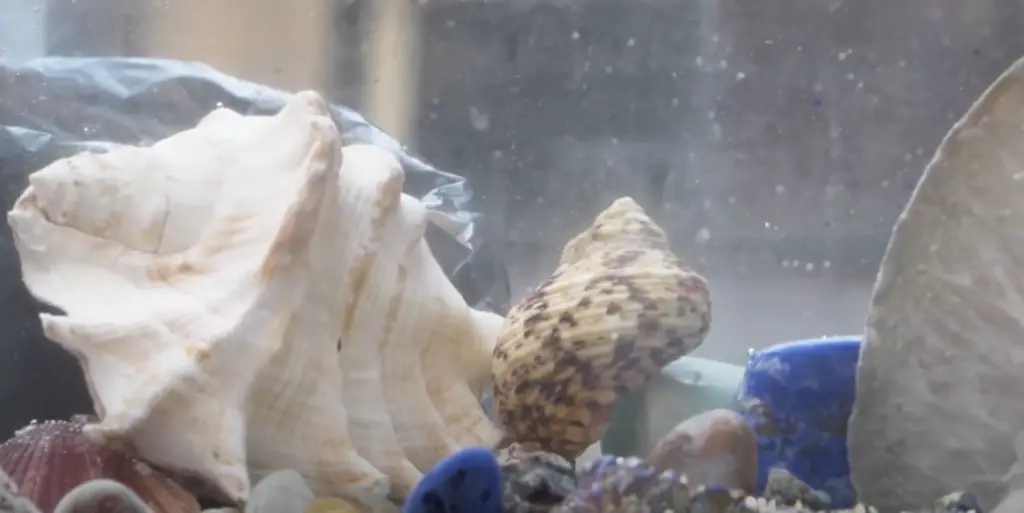
FAQ
How can I feed a garden snail?
Garden snails can be fed a variety of vegetables and fruits. They love cucumbers, lettuce, cabbage, spinach, apples, oranges, tomatoes, and much more! Avoid feeding them processed or sugary treats as these are not healthy for them. You can also feed them commercial snail food that is specially formulated for their nutritional needs. Fresh water should also be provided daily in a shallow bowl or dish. Be sure to discard any uneaten produce after 24 hours to avoid contamination and spoilage.
How often do garden snails need to be fed?
Garden snails should generally be fed every other day. Depending on the size of your snail population you may need to increase the frequency if there is competition for food sources. And, of course, you should always provide a freshwater source daily.
Why should you not feed garden snails?
Garden snails should not be overfed as this can cause health problems. Also, processed and sugary treats should be avoided as they are not healthy for them. If you choose to feed your garden snails, it’s important to monitor their diet and make sure they are receiving appropriate nutrition. Finally, food scraps and uneaten produce should always be discarded after 24 hours to prevent contamination.
How long do garden snails live?
Garden snails typically live for 1-2 years in ideal conditions, but can live up to 5 years in captivity with proper care. Regularly providing a clean environment, safe food sources, and enough moisture is essential for their long-term health and survival.
Are snails harmful to your garden?
Snails can be beneficial to your garden as they help aerate and fertilize the soil. However, if their population becomes too large they can cause damage to plants by eating tender young leaves and flowers. To keep the snail population in check, remove any snails you find on your plants or in nearby areas regularly. Additionally, provide them with alternate food sources so they don’t become dependent on your garden for sustenance.
Are snails dangerous?
Snails are generally harmless and don’t pose a direct threat to humans. However, they can carry parasites that may be harmful when consumed. Therefore, it’s best to always thoroughly wash your hands after handling snails or their food sources. Additionally, you should never consume wild-caught snails as they may harbor dangerous bacteria or parasites. Finally, keep an eye on children who may be tempted to pick them up and play with them as they can bite if handled roughly.
Can snails climb walls?
Yes, garden snails can climb vertical surfaces such as walls and tree trunks using their muscular foot and sticky mucus secretions. It is important to make sure they have access to food, water, and shelter at ground level, as they may not be able to climb back down without assistance. Additionally, you should check walls regularly for any snails that may have become trapped in the crevices. If any are found, carefully help them return to the ground.
Are garden snails nocturnal?
Garden snails typically remain active during dawn and dusk hours when it is cooler outside. They tend to go dormant during the hottest parts of the day, taking refuge in shaded areas or underground burrows until nighttime falls again. During this time they will venture out in search of food sources and other environmental stimuli. Consequently, you are most likely to spot them in your garden during the morning and evening hours. Keeping your garden well-maintained with plenty of food sources will encourage them to stay in your yard longer. With proper care, you may even be able to witness their unique nocturnal behaviors!
Can I keep a garden snail as a pet?
Yes, garden snails can make interesting and low-maintenance pets. However, you will need to create a suitable environment with plenty of food sources, clean water, and hiding places. Additionally, it is important to research the necessary care requirements for your particular species before bringing them home. With proper care, they can make delightful little companions that bring joy and tranquility into your home!
Do garden snails get lonely?
Garden snails are solitary creatures and do not require the companionship of other snails to thrive. They may become stressed if kept with multiple snails due to limited food sources and competition for space. Therefore, it is best to keep only one snail per enclosure, unless you have created a large enough habitat to accommodate them all. Additionally, providing plenty of hiding places can help minimize stress levels in multi-snail enclosures.
Do garden snails bite?
Garden snails typically won’t bite humans unless they are provoked or handled roughly. If you need to move them from one place to another, always use gloves or scoop them up gently with a spoon or cup so as not to startle them. Additionally, if you do find yourself on the receiving end of a bite, don’t worry as it won’t cause any serious damage. Garden snails have very small mouths and they are not capable of breaking the skin.
Useful Video: What Do Garden Snails Eat and Drink?
Conclusion
Garden snails can eat a wide variety of plants, and make a great addition to any garden or terrarium. They are easy to care for, require minimal maintenance and can help keep your hedges and flowers healthy by eating pesky pests like aphids. While they may not be the most glamorous pet, they add a unique level of charm to any outdoor space. Garden snails make ideal pets for young children as well as adults who don’t have the time or resources to take care of more demanding animals.
References:
- https://escargot-world.com/what-do-snails-eat/
- https://www.floridayards.org/what-do-garden-snails-eat/
- https://a-z-animals.com/blog/what-do-garden-snails-eat/





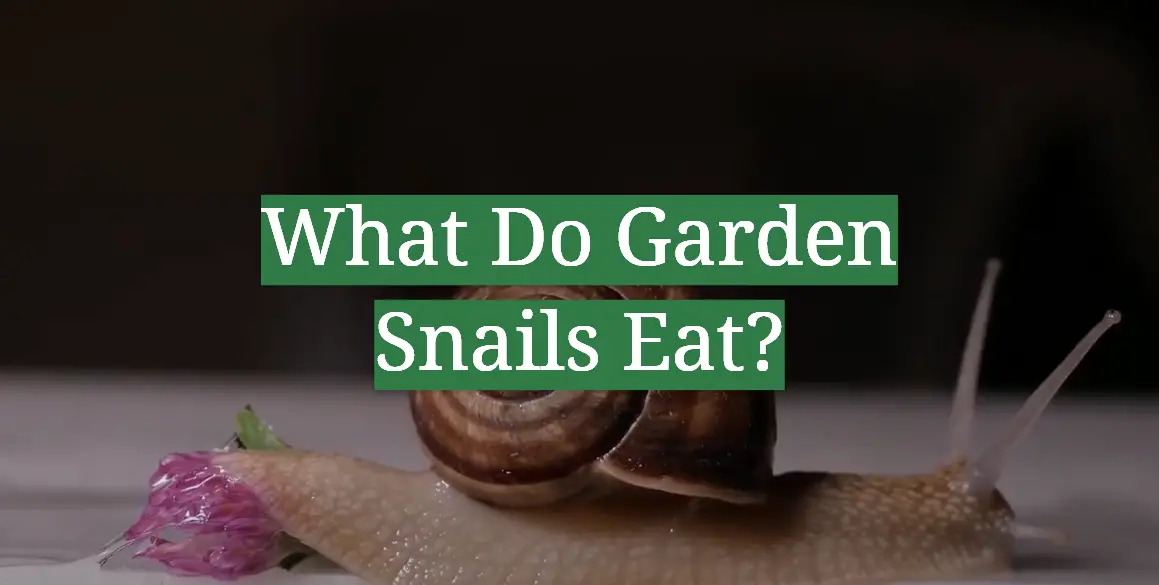



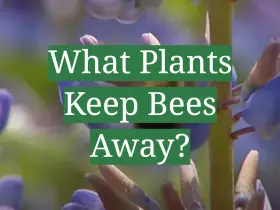
Leave a Reply
View Comments